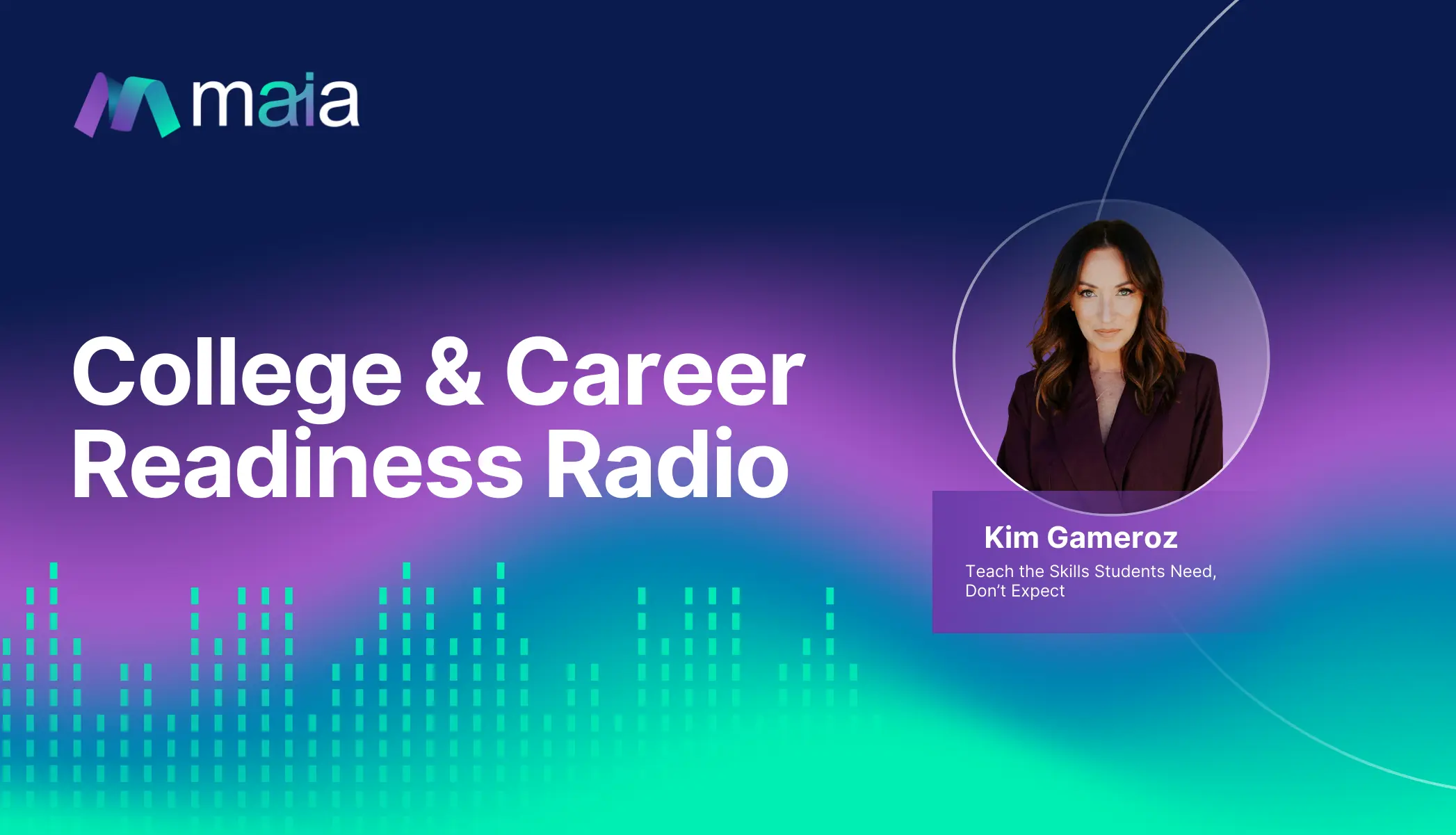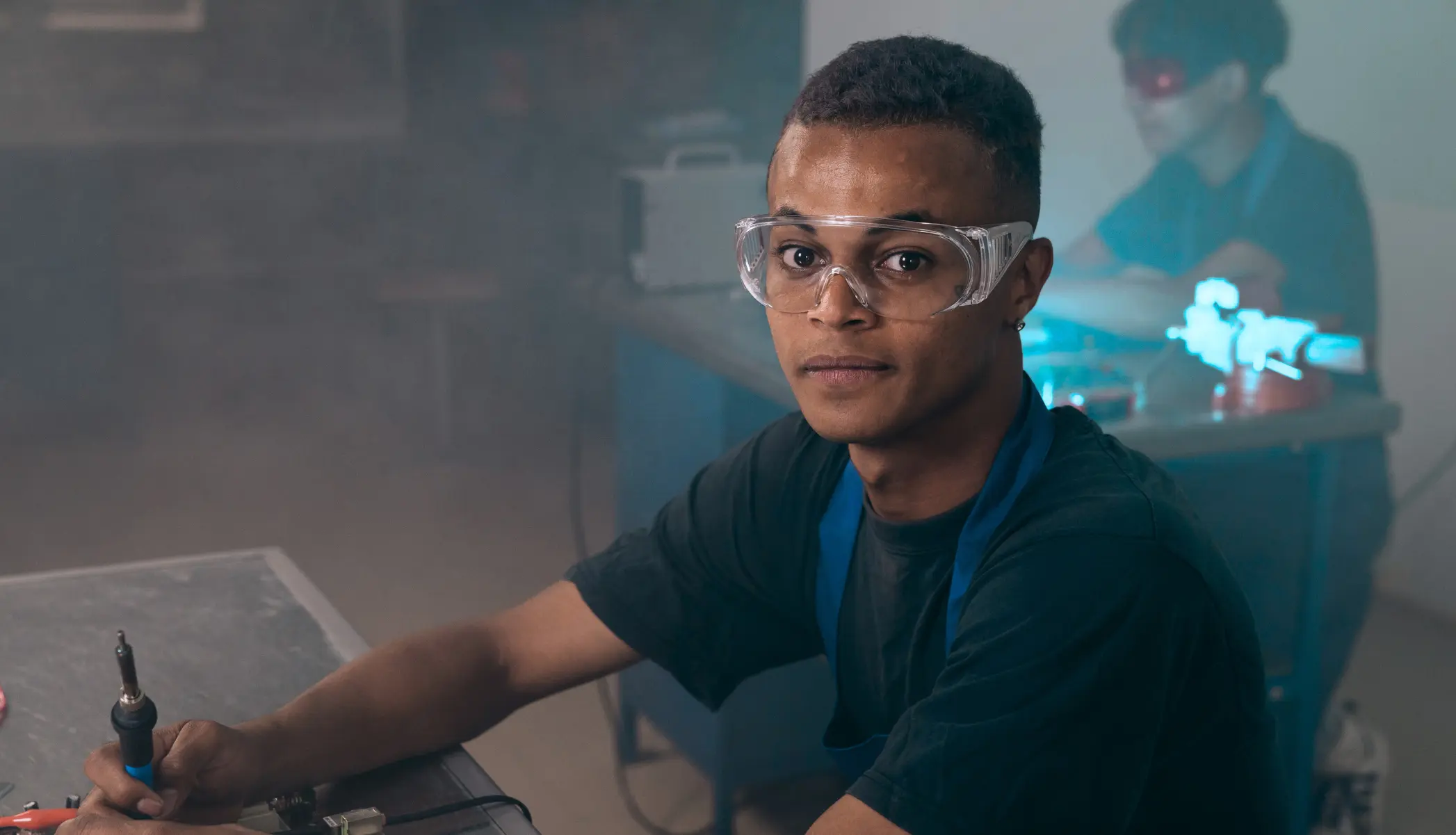Jason Van Nus’ Bio
Jason is a Work-Based Learning & Youth Apprenticeship Director, passionate about working with students, employers, and industry toward robust workforce and economic development.
He is a thought leader in the Career & Technical Education (CTE) space and is known as a gentle disruptor and talent pipeline specialist.
The guest for this episode of College & Career Readiness Radio is Jason Van Nus, Youth Apprenticeship Program Director and Talent Pipeline Specialist.
Jason Van Nus introduces a continuum for work-based learning that begins in elementary school and continues through high school.
Exposure (K-5): Students are introduced to a broad array of careers, expanding their understanding of what’s possible.
Exploration (Grades 6-9): Students dive deeper into specific careers, building interest profiles and discovering what aligns with their skills and passions.
Experience (Grades 10-12): Students participate in real-world job experiences directly connected to their studies and future career goals.
He emphasizes the need for early exposure and exploration so students can make informed choices by the time they reach high school.
Jason discusses the challenges of implementing work-based learning in elementary and middle schools and offers strategies to overcome resistance and logistical hurdles.
He highlights the pitfalls of misaligned work placements, such as students working in jobs unrelated to their studies or career aspirations.
Don’t miss what he says about the importance of employability skills (sometimes called “durable” or “transferable” skills) and how early career exploration helps prevent costly mismatches later.
Jason shares real-life examples where early exposure and exploration helped students avoid career paths that didn’t fit their interests or values.
Jason advises educators to move beyond appeals to altruism and instead demonstrate the tangible value of work-based learning for businesses.
He explains how work-based learning programs give employers early access to talent, create loyalty, and provide a competitive advantage.
He reveals his personal compelling pitch for industry partners: by engaging with schools, businesses ensure their tax dollars help develop talent that will benefit their own organizations, not just their competitors.
Jason advocates for the use of advisory boards (or “boards of directors”) made up of industry leaders, local officials, and community stakeholders to help shape curriculum and ensure it meets workforce needs.
Don’t miss what he describes as a Reverse Career Fair—an innovative event where students set up booths to showcase their skills, and employers circulate to meet them. This format flips the traditional career fair and helps students practice networking, self-presentation, and receive direct feedback from industry professionals.
He discusses events that can expand students’ professional networks, particularly for those with limited social capital.
Jason emphasizes that building social capital is especially transformative for students from disadvantaged backgrounds, helping to level the playing field for future success.
People and organizations mentioned during the show: ACTE, Dr. Christopher Nesmith and Kristy Volesky.
If you want to learn more about supporting internships, work-based learning experiences, and other ways to help students build their network, book a time to see a demo of the MaiaLearning.
If you want to talk to the host of the show about college and career readiness, book a time to meet.
.png)















